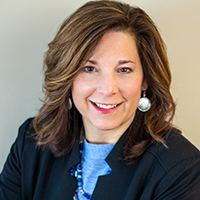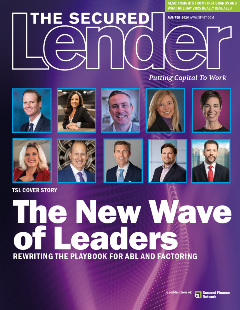
Laura Sankey
SVP, U.S. Bank Asset Based Finance
Laura Sankey is the senior vice president of Appraisal & Policy Administration for U.S. Bank’s Asset Based Finance Division. Laura’s overarching responsibilities encompass identification and mitigation of risk.
With over 25 years of asset valuation and asset-based lending experience, Laura developed and currently manages a centralized appraisal management process for the Asset Based Finance division of U.S. Bank. She works with third-party vendors and internal stakeholders to identify and mitigate collateral risk throughout the lifecycle of a loan. Laura’s experience early in her career with start-up finance companies was an integral part of developing quality control and operational guidelines to ensure effective operating procedures were in place to mitigate risk. Through these experiences, Laura has developed core skills in effective communication, project management, risk mitigation, team building and mentoring.
Laura earned her B.S. in finance at Bryant University and her MBA at Babson College. She was the recipient of the “2015 US Bank Summit Award”, for which recipients have demonstrated core leadership practices of Client Advocacy, Taking Balanced Risks, Innovation, and Collaboration. Laura was also a featured speaker at the Boston Women’s Leadership Summit (5/2019).
What advice would you offer to women just starting out in the industry?
Find a mentor(s) and build your network – the value of your network can’t be overstated - and don’t be afraid to ask questions or try something outside of your comfort zone. What you learn in college is just the basic foundation and after that it’s your journey to find happiness through various experiences. Building your network, leveraging other people’s networks and working with mentors will give you a variety of perspectives. Additionally, it’s important to advocate for yourself. You should be your biggest “cheerleader” and ask about advancement opportunities or projects outside of your daily responsibilities that allow you to learn more and interact with other colleagues in your company or clients. Looking back, I should have advocated for myself more often and been more confident in my abilities. Lastly, I’d recommend focusing on developing skill sets rather than the specific tasks of your day-to-day responsibilities. My career hasn’t been a straight path but rather an evolution of determining what I enjoy doing. I was fortunate to find opportunities early in my career and my hard work and reputation have paved the way for ongoing opportunities.
What do you enjoy most about your role? Least?
The favorite part of my role is working with others and problem-solving. I have a skill set that can be applied to many situations and I enjoy analyzing an opportunity or challenge and working with others to provide solutions. I love that my day-to-day priorities aren’t routine and predictable. At the end of the day if, I’ve taught somebody something new, mentored someone, solved an issue, and continue to be value-added to what we do, that’s where I get the most satisfaction. 2020 had its challenges but I found it intriguing to follow how our industry and asset valuations were evolving and adapting to rapidly changing circumstances – I love to learn. What I like least about what I do is that I often find it challenging to balance work with “life”, but I guess that’s the flip side of the coin of what I enjoy most.
What do you think work will look like in the post-pandemic world?
I think our post-pandemic work will permanently look different. Technology is always evolving and impacting our lives and we continue to adjust, but there has been nothing comparable to the short-learning curve we all experienced in 2020. I think we’ve found innovative ways to do our work with less in-person interactions and find that we can be just as, if not more, productive. However, I think we need to ensure we find ways to maintain a personal connection. Those connections may be through hybrid work environments, videoconferencing, etc., but maintaining the personal connection, whether it be with co-workers or customers, will be critical. Despite technological advancements, I don’t think in-person interaction can be effectively replaced with technology 100% of the time.




